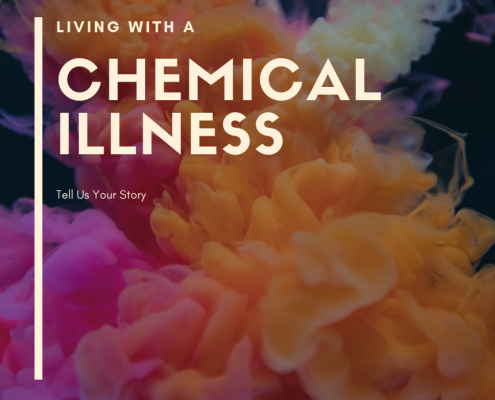Oral Histories of Environmental Illness

UCLA’s Center for the Study of Women (CSW) is conducting an oral history project with women, transgender, genderqueer and non-gender conforming individuals who experience chemical illnesses (including chemical sensitivity, TILT, MCS, or Environmental Illness) and individuals who have engaged and/or advocated on the issue. We are currently seeking interviewees.
What is this Oral History Project?
We are pursuing this project because women are disproportionately exposed to toxins through strategic marketing of products that specifically target them, and as the stories of women, transgender, genderqueer and non-gender conforming individuals with chemical sensitivities have not been told. Often, the health impacts faced by these groups have been overlooked or silenced. Through this project, we hope to elevate and highlight the stories of people who have been impacted in order to motivate scientists, researchers, policymakers, and corporations to make substantive changes to better the health of all people.
Who can be interviewed?
We are looking for people of all genders, but especially women, transgender, genderqueer and non-gender conforming individuals who experience chemical illnesses (including chemical sensitivity, TILT, MCS, or environmental illness) and individuals of all genders who have engaged and/or advocated on the issue.
How will my story be collected?
Interviews will be collected at the CSW on the UCLA campus, at an off-site location of your choosing in the Los Angeles region, or remotely, by phone. One of our researchers will interview you about your history with and/or connectio to environmental illnesses/chemical sensitivity. The interviews may last between 1 to 3 hours, and they can be conducted across multiple sessions. This is an opportunity for you to share your story, and you may answer as many or as few questions as you desire.
Prior to your interview, the interviewer will schedule a pre-interview conversation where you and the interviewer can discuss what kinds of questions will be asked and what topics, if any, you would like to be off-limits.
What will happen with my story?
Your oral history interview will be preserved by the UCLA Library Center for Oral History Research (COHR). COHR will make it available to researchers for academic and creative projects. Your story will become part of the public record, and can help to tell the story of environmental illness for future generations.
You will be able to determine how accessible your story is to the public. With your consent, all or part of your oral history can be made available online through the CSW and/or COHR websites, after being transcribed and upon your approval. Before publication, you will be sent a copy of the transcript of your oral history, which you can edit. Web publication is optional and you may request that your oral history be removed from the web at any time.
Want to participate or learn more?
If you or anyone you know has been negatively affected because of chemical exposures or has advocated on behalf of this issue, then UCLA’s Center for the Study of Women wants to hear your story. If you are interested in participating or have questions about this project, please contact OralHistoryArchive@women.ucla.edu.

